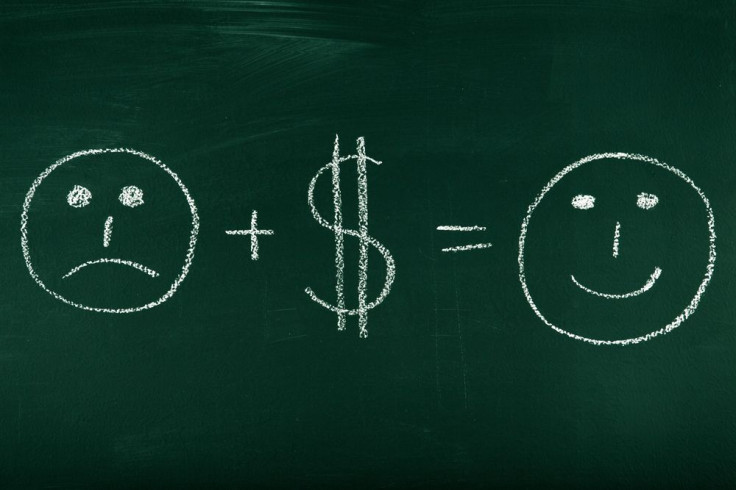Americans' Definition Of Rich Depends On How Much They Make: The Actual Breakdown

How much money does your household need to earn in order to feel rich? It’s a question UK research firm YouGov recently asked 1,000 Americans and found it was a matter of perception, life style, and of course, income, with nearly 75 percent of participants hopeless they’d ever become rich in their lifetime.
The researchers looked at how different demographic factors played in the role of financial satisfaction, optimism, and pessimism. Twenty-eight percent of urbanites believed there was a small chance they may one day make it big and become rich, compared to only five percent of those living in rural areas and nearly twice as many suburbanites, or 18 percent felt they could one day feel rich.
Women, independents, and those who were less educated weren’t as optimistic they would one day become as rich as men, republicans, democrats, or people with college degrees thought. More single people felt they would become rich, compared to those in a relationship or divorced. There was no difference in optimism between those who had children and those who did not.
Do you have a particular number that you’d feel defined your notion of what it’d be like to be rich? You’ll more than likely answer the question differently than others depending on how much money your household is making. Those who made anywhere from $10,000 to four million were asked, and of them, those who made more money reported that they needed more money in order to fit their definition of rich. Americans with an annual income less than $25,000 thought they needed an average of $293,000 in order to feel rich. Those who made more than $120,000 a year believed they needed an average of $501,000 to feel rich.
A Gallup study released in January of this year revealed two out of three Americans are dissatisfied with the way income and wealth are distributed in the United States. Only seven percent of the nation’s adults felt satisfied with income and distribution. On the other end of the spectrum, 39 percent of adults were very dissatisfied.
Last year, economists Betsey Stevenson and Justin Wolfers from the University of Michigan gathered data from Gallup’s satisfaction ladder, which surveyed happiness zero to maximum of 10, along with how much they earn annually. They found that moving from rich to richer raised as much happiness as the poor moving to a less poor income level, according to The Economist. It didn’t matter what country they surveyed, the entire Gallup World Poll yielded the same results.
Worldwide, the more money a household brings in, the happier the citizens think they will feel, yet no one rates their own income as a satisfying one that brings them enough money to feel, not only happy, but also rich.



























